
Black Nihilism and
Antiblack Racism
Living Existentialism
Series Editors: T. Storm Heter, East Stroudsburg University, LaRose T. Parris, Lehman College, the City University New York, and Devin Zane Shaw, Douglas College
Existentialism is a living, practical philosophy, engaged in contemporary events and responsive to other currents of philosophy across the globe. It can be instrumental to an individuals understanding of themselves as well as to examinations of political, societal, and ecological phenomena.
This series focuses on creative, generative scholarship that expands discussions of existentialism in order to foster an intellectual space for articulating the diverse lineages of existentialismfrom Beauvoirs feminist philosophy, to the anticolonial, black existentialism of thinkers like Frantz Fanon and Angela Davis who composed their views of freedom, self, and other from the lived experience of racism and colonialism.
Existentialism has often been miscategorized as a European tradition, limited by the gravitational pull of a few thinkers. Part of the work of this series is to dismantle this incorrect impression of where Existentialism comes from and what its potential is. Existential thought offers a valuable vocabulary for expressing the lived perspectives of colonized, indigenous, and othered peoples. As such, it is increasingly relevant to the ongoing struggle for human freedom the world over.
Philosophy of Antifascism: Punching Nazis and Fighting White Supremacy
Devin Zane Shaw
Sartre on Contingency: Antiblack Racism and Embodiment
Mabogo Percy More
Black Nihilism and Antiblack Racism
Devon Johnson
Black Nihilism and
Antiblack Racism
Devon R. Johnson
ROWMAN & LITTLEFIELD
Lanham Boulder New York London
Published by Rowman & Littlefield
An imprint of The Rowman & Littlefield Publishing Group, Inc.
4501 Forbes Boulevard, Suite 200, Lanham, Maryland 20706
www.rowman.com
Copyright 2021 by The Rowman & Littlefield Publishing Group, Inc.
All rights reserved. No part of this book may be reproduced in any form or by any electronic or mechanical means, including information storage and retrieval systems, without written permission from the publisher, except by a reviewer who may quote passages in a review.
British Library Cataloguing in Publication Information Available
Library of Congress Cataloging-in-Publication Data
Names: Johnson, Devon, author.
Title: Black nihilism and antiblack racism / Devon Johnson.
Description: Lanham, Maryland : Rowman & Littlefield, [2021] | Includes bibliographical references and index. | Summary: A philosophical analysis of the pessimistic and nihilistic conditions of the existential possibilities for blackness and antiblack racism in 21st century AmericaProvided by publisher.
Identifiers: LCCN 2021035484 (print) | LCCN 2021035485 (ebook) | ISBN 9781538153499 (hardcover) | ISBN 9781538153505 (epub)
Subjects: LCSH: RacismUnited StatesHistory21st Century. | BlacksUnited StatesSocial conditionsHistory21st Century. | NihilismHistory21st Century. | United StatesRace relationsHistory21st century.
Classification: LCC HT1521 .J64 2021 (print) | LCC HT1521 (ebook) | DDC 305.800973/0905dc23
LC record available at https://lccn.loc.gov/2021035484
LC ebook record available at https://lccn.loc.gov/2021035485
 The paper used in this publication meets the minimum requirements of American National Standard for Information SciencesPermanence of Paper for Printed Library Materials, ANSI/NISO Z39.48-1992.
The paper used in this publication meets the minimum requirements of American National Standard for Information SciencesPermanence of Paper for Printed Library Materials, ANSI/NISO Z39.48-1992.
Contents
This book is the summation of my youth, my education, and my experiences; above all, it is a testament to my having survived, and matured, through the gauntlet of blackness in America. I could not have made it through this crucible, thus far, with sound mind and understanding, let alone write this book, without the unwavering protection, support, guidance, and simple kindness of dear people, whom I have come to regard as loved ones, or, simply, family. I am forever indebted to Lewis Gordon and Jane Anna Gordon. Lewis and Jane have been amazing sources of encouragement and support, for me, throughout the years. Their genuine kindness and generosity cannot be measured in words. Lewis was my doctoral adviser; I do not recall my frameworks for thinking about race before meeting him. The breadth and scope of his scholarship has singularly had the greatest impact on my own. I aim to make him proud. I thank him for his many gifts. In particular, in the absence of my own father, Lewis has, by word, thought, and deed, been somewhat of a fatherly figure for me. He was my philosophy adviser, but also revealed countless, valuable, and unforgettable jewels, insights, into what it means to be a Man, in the most humanist sense of the term: to be a man for my family, for my people, my community; to be a Man for humanity. I am grateful for his dedicated approach to nurturing and demonstrating for his students what it means to, truly, be a humanist philosopher. I was an unconventional student. Upon one of our first meetings, I confessed that I wasnt sure how I had made it into a doctoral program. I asked him what he saw in me, and forewarned that I may not be as well-read as some of his other students. He simply replied, with a gentleness of demeanor that anyone who has ever met him falls in love with, Oh; no worries. Ive taught students with far-less background. On another occasion, when I was struggling to pass a preliminary exam, I considered quitting the doctoral degree program after being condescended and verbally abused by a senior professor handling my exam. I called Lewis, and told him, I might be done. He told me, Relax. Then, he simply said, You will not have to work with [that professor], anymore. A few days later, I was assigned a new reviewer. Under their guidance, I passed the exam. There is an immense responsibility that comes along with having the love, support, and belief of your elders: that amazing battery of motivation that comes from simple knowledge that there are those who have prepared a place for you, love you, believe in you, and who gift you with resources to succeed and do well. I write this book in gratitude and solemn respect for all that I have been gifted, and taught, by so many extraordinary teachers, and elders, whom each have prepared me, in various ways, to succeed, and do well.
I am thankful to all of my early education teachers, Ms. Dorothy Dennis; Mr. Robert Starks; the late, Mr. Antonio Henry; Ms. Barbara Henderson; Ms. Barbara Duncan. I am thankful for Dr. Maria Morales, of Florida State University, who took me on, as the only black philosophy major in my graduating undergraduate class, and became my adviser throughout my masters degree. I could not have earned a spot studying with Lewis had it not been for her awesome tutelage. Dr. Peter Dalton, also, was instrumental during my development at Florida State University. Thank-you, both, for the many hours of discussion and encouragement. In particular, thank-you, Kermit Harrison, an advanced graduate student of philosophy I was fortunate enough to meet. He was the first black person I had ever seen speak academically. He introduced me to critical race theory. He also introduced me to Leonard Harris, who ultimately directed me to Lewis Gordon. In many ways, he was my first Africana philosophy adviser. Thank-you, Kermit. I would like to thank Dr. Paul Taylor; Dr. Jitendra Mohanty; and the late, Dr. Tom Meyer, whom I met while pursuing my doctorate degree at Temple University, for their kindness and generosity in always being willing to meet and discuss ideas with me. Also, thank-you, Sonja Lawson, for always having my back. I was fortunate enough, during this time, to also meet many dedicated graduate students, who I studied alongside and have offered me invaluable critical feedback at various stages of this projects development. Firstly, I must thank my dear friend, Vince Beaver, who has read over numerous versions of this project and has been a rock solid source of support, motivation, and constructive criticism. I am also thankful to Greg Graham for countless hours spent discussing these ideas, and for his genuine friendship. There are many others to thank, including teachers, colleagues, and professional acquaintances, whose comments, thoughts, encouragements, and critical conversations have helped me develop this project. This work benefited from the direct and indirect contributions of many first-class scholars and thinkers I have been lucky enough to meet on my journey. I am thankful for every encounter had. Thank-you, Myron Beasley, Aili Bresnahan, danielle davis, Mireille Fanon-Mends-France, Leonard Harris, Paget Henry, Rozena Maart, P. Mabogo More, Nelson Maldonado-Torres, Michael Monahan, Marilyn Nissim-Sabat, Lucious T. Outlaw, Jean-Paul Rocchi, and Cornel West, to name a few. I am thankful for the community of people, whom I affectionately refer to as my philosophical brothers and sisters. Thank-you, Tal Correm, Douglas Ficek, Chike Jeffers, Derefe Chevannes, Lior Levy, Qrescent Mason, Tom Meagher, Neil Roberts, Rosemere Da Silva, Colena Sanker, and Ariella Werden-Greenfield. I am grateful to be a part of this wonderful community of scholars, who are each located around the Caribbean Philosophical Association, an organization that I am forever thankful for, a safe and nurturing space for open and critical philosophical engagements with the underside of our political realities.
Next page
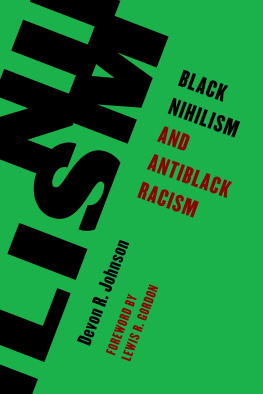
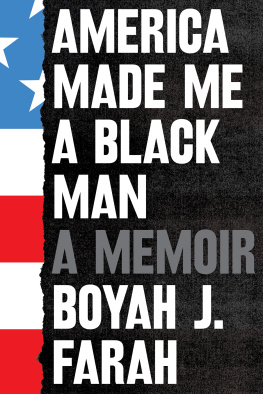
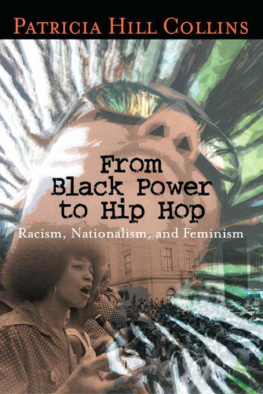

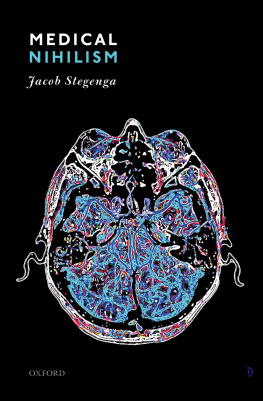

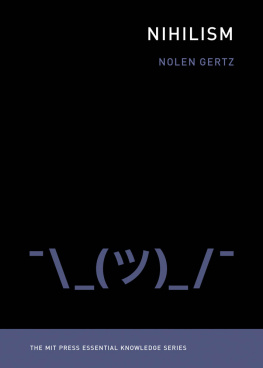

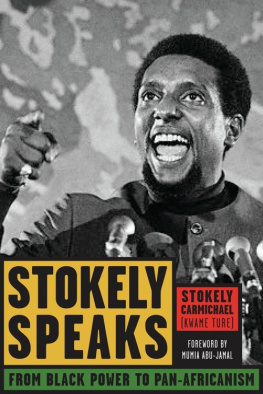
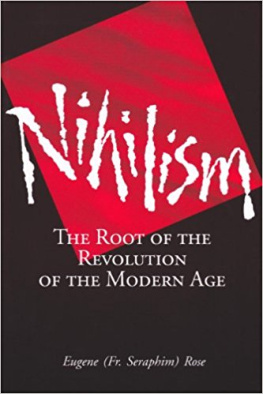
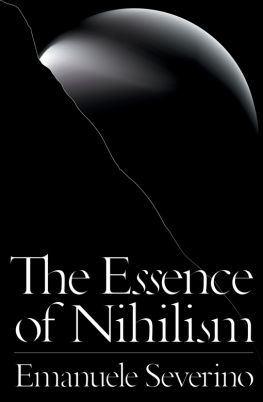

 The paper used in this publication meets the minimum requirements of American National Standard for Information SciencesPermanence of Paper for Printed Library Materials, ANSI/NISO Z39.48-1992.
The paper used in this publication meets the minimum requirements of American National Standard for Information SciencesPermanence of Paper for Printed Library Materials, ANSI/NISO Z39.48-1992.